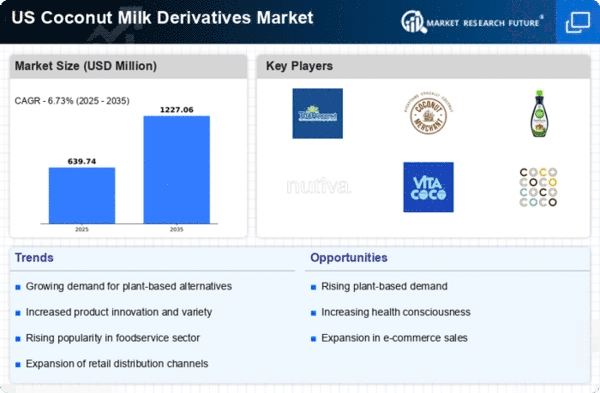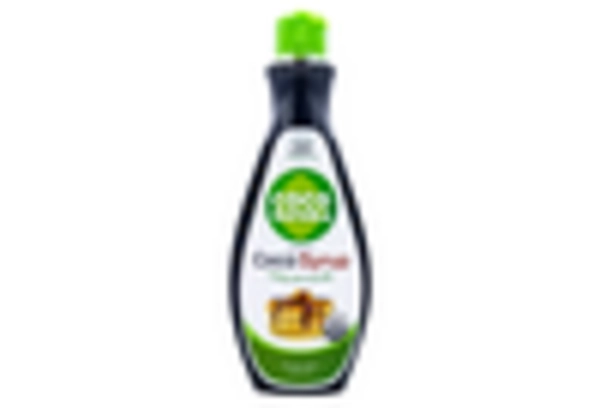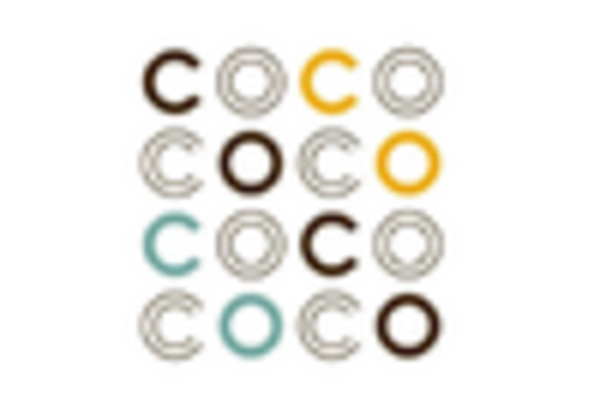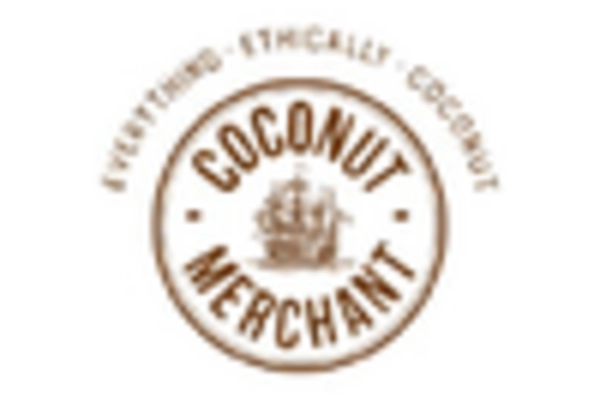Culinary Versatility
Coconut milk derivatives are gaining traction in the culinary world, appealing to chefs and home cooks alike due to their versatility. This market is increasingly recognized for its ability to enhance flavors in both sweet and savory dishes. The coconut milk-derivatives market is being utilized in various cuisines, from Asian to Latin American, as a creamy base for soups, sauces, and desserts. The growing trend of experimenting with international flavors in the US food scene suggests that the demand for coconut milk derivatives will continue to rise. Additionally, the market is projected to grow at a CAGR of around 8% over the next five years, indicating a robust interest in these products among culinary professionals and food enthusiasts.
Expansion of Retail Channels
The coconut milk-derivatives market is witnessing an expansion of retail channels, which is facilitating greater accessibility for consumers. Traditional grocery stores, health food shops, and online platforms are increasingly stocking a variety of coconut milk products, catering to the rising demand. This diversification in distribution channels is crucial, as it allows consumers to easily find and purchase coconut milk derivatives. The e-commerce segment, in particular, has shown remarkable growth, with online sales of coconut products expected to increase significantly in the coming years. This trend indicates that the coconut milk-derivatives market is adapting to consumer preferences for convenience and variety, ultimately driving sales and market penetration.
Rising Demand for Dairy Alternatives
The coconut milk-derivatives market is experiencing a notable surge in demand for dairy alternatives, driven by a growing consumer preference for plant-based diets. This shift is largely influenced by health-conscious individuals seeking lactose-free options. According to recent data, the market for dairy alternatives in the US is projected to reach approximately $30 billion by 2026, with coconut milk derivatives playing a pivotal role in this growth. The increasing awareness of the health benefits associated with coconut milk, such as its low calorie content and high levels of medium-chain triglycerides (MCTs), further propels this trend. As consumers become more educated about nutrition, the coconut milk-derivatives market is likely to expand, catering to a diverse range of dietary needs.
Increased Awareness of Health Benefits
The coconut milk-derivatives market is benefiting from heightened awareness regarding the health benefits associated with coconut products. Consumers are increasingly recognizing the nutritional advantages of coconut milk, which is rich in vitamins, minerals, and healthy fats. This awareness is driving a shift towards incorporating coconut milk derivatives into daily diets, particularly among health-conscious individuals. Research indicates that coconut milk can aid in weight management and improve heart health, which resonates with the growing trend of preventive healthcare. As more consumers seek functional foods that contribute to overall well-being, The coconut milk-derivatives market is likely to experience sustained growth, reflecting a broader shift towards health-oriented food choices.
Growing Interest in Vegan and Plant-Based Diets
The coconut milk-derivatives market is poised for growth due to the increasing interest in vegan and plant-based diets among consumers. As more individuals adopt these dietary lifestyles, the demand for coconut milk derivatives as a substitute for traditional dairy products is likely to rise. This trend is supported by a growing body of research highlighting the environmental benefits of plant-based diets, which resonate with eco-conscious consumers. The coconut milk-derivatives market is well-positioned to capitalize on this shift, as it offers a sustainable and nutritious alternative. Market analysts suggest that the plant-based food sector could reach $74 billion by 2027, with coconut milk derivatives playing a significant role in this expansion.
















